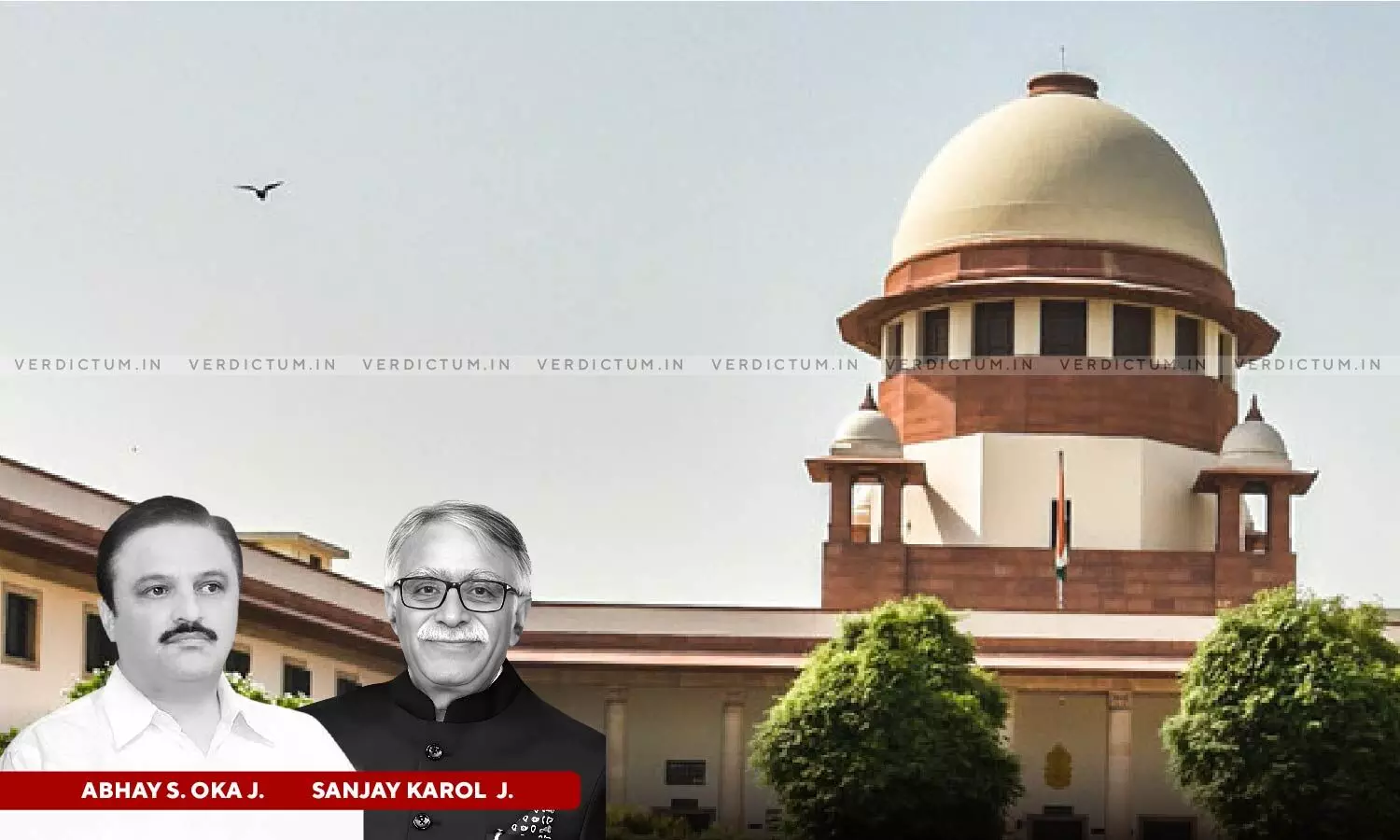
When There’s Similar Evidence Of Eyewitnesses Against 2 Accused Ascribing Them Same Role, Court Can’t Convict One & Acquit Other: SC
 |
|The Supreme Court in an unlawful assembly related case has held that when there is similar or identical evidence of eyewitnesses against two accused by ascribing them the same or similar role, the Court cannot convict one accused and acquit the other.
The Court was deciding a criminal appeal preferred by one of the accused who was convicted based on an occurrence in the year 2003.
The two-Judge Bench comprising Justice Abhay S. Oka and Justice Sanjay Karol noted, “When there is similar or identical evidence of eyewitnesses against two accused by ascribing them the same or similar role, the Court cannot convict one accused and acquit the other. In such a case, the cases of both the accused will be governed by the principle of parity. This principle means that the Criminal Court should decide like cases alike, and in such cases, the Court cannot make a distinction between the two accused, which will amount to discrimination.”
The Bench said that the case of the appellant/accused stands on the same footing as other accused persons who were acquitted by the Apex Court and hence, the said accused must get the benefit of parity.
Amicus Curiae M. Shoeb Alam represented the appellant/accused while Advocate Swati Ghildiyal represented the respondent/State.
Factual Background -
According to the prosecution case, about 1,000 to 1,500 people had gathered in the Shah Alam area of the city of Ahmedabad. When a man was passing through that area by his two-wheeler, the crowd stopped him and he was forced to disclose his identity. After he disclosed his identity, the crowd started assaulting him and his two-wheeler was burnt. Thereafter, the crowd stopped an auto-rickshaw, and the passengers in the auto-rickshaw were forced to alight. The necklace of a woman who was a passenger in the auto rickshaw, was snatched and the mob assaulted another person who was carrying LPG cylinders on a bicycle.
A man was passing through that area on his two-wheeler with the deceased as a pillion rider who managed to run-away but the deceased was assaulted by the mob and afterwards, his dead body was found in a nearby lake. A total of 13 accused were prosecuted and some of them were convicted and Trial Court acquitted the rest of the accused. Seven accused were convicted, including the appellant for the offences punishable under Section 396 read with Section 149, Section 395 read with Section 149, Section 307 read with Section 149, Section 435 read with Section 149 and Section 201 read with Section 149 of IPC. The maximum sentence imposed was life imprisonment and while confirming the conviction of the accused, the High Court brought down the sentence to 10 years.
The Supreme Court in view of the above facts observed, “Assuming that PW-25 and PW¬26 identified accused nos.2, 3 and 4 by stating that they were members of the mob; once a Coordinate Bench of this Court discards their testimony in its entirety being unreliable, the benefit of the said finding will have to be extended to the accused nos.2,3 and 4 as they are similarly placed with accused nos.1,5 and 13. Moreover, except for PW¬25 and PW¬26, no other witnesses have ascribed any role to the accused nos.2, 3 and 4.”
The Court said that if it fails to grant relief to the accused, the rights guaranteed to the accused under Article 21 of the Constitution will be violated and it will amount to doing manifest injustice.
“The principles laid down in the case of Harbans Singh will apply. … In fact, as a Constitutional Court entrusted with the duty of upholding fundamental rights guaranteed under the Constitution, it is our duty and obligation to extend the same relief to accused no.2. Therefore, we will have to recall the order passed in the special leave petition filed by accused no.2”, added the Court.
Accordingly, the Apex Court allowed the appeal, acquitted the appellant, and set aside his conviction.
Cause Title- Javed Shaukat Ali Qureshi v. State of Gujarat (Neutral Citation: 2023INSC829)